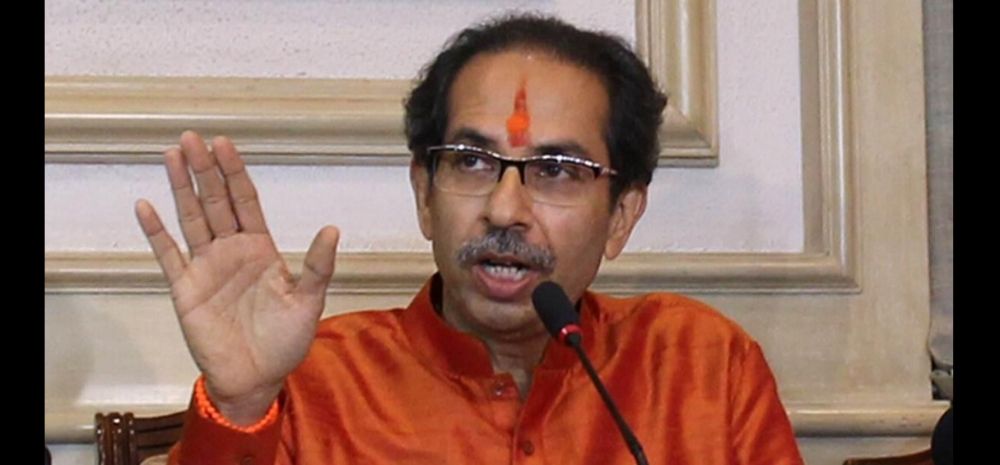Curious Case Of Maharashtra Lockdown: 21 Things That Are Allowed; 6 Activities Not Allowed; Rs 10,000 Penalty

Maharashtra Chief Minister Uddhav Thackeray on Tuesday quoted the Covid situation in the state as ‘frightful’, announcing stringent restrictions in the state for 15 days, applicable from 8 pm on April 14 to 7 am on May 1.
The CM, while addressing the people of the state through a live broadcast on social media yesterday, said that while he will not impose a complete lockdown in the state, a strict ‘janta curfew’ will be put into effect for 15 days, starting 8 pm on April 14.
Besides Janta curfew from 8pm on April 14 to 7am on May 1, the state has also imposed Section 144 of CrPC, as per which mass gatherings are prohibited.
Maharashtra is the worst-hit state in the country, adding 62,212 fresh cases on Tuesday, crossing the Covid tally in the state past 7 lakh this month. September 2020 held the record for maximum Covid infections detected in a month, with the 5.9 lakh figure.
You can find all the curbs and allowances in the 15 day Janta curfew here.
What are Allowed / What Will be Opened?
- All essential services will remain operational from 7am to 8pm.
- Hospitals, clinics, diagnostic centres, vaccinations (manufacturing and distribution), medical equipment, pharmaceutical companies and other health services.
- Food items/shops, groceries, vegetable shops, fruit vendors, dairies, bakeries, confectioneries.
- Street vendors will be allowed to sell items for home delivery/sale but not eating.
- Cold storage and warehousing services will also be allowed. Manufacturing units engaged in production of items for essential services will remain open.
- Construction activity allowed only for sites where labourers live on site.
- Industries with staff accommodations inside the unit will be allowed to function.
- Transport: Trains, airplanes, taxis, auto-rickshaws and public buses will all be allowed with seating restrictions for essential workers, like healthcare workers, bank employees, etc.
- General public can use public transport too but only for valid reasons like students with hall tickets, travelers boarding a train/flight, going for vaccination and other such valid essential reasons.
- Private vehicles allowed only for emergency purposes or essential services.
- Whether domestic help, drivers and attendants will be allowed to work under the exceptions Category will be decided upon by local authorities based on local conditions.
- Restaurants and bars will be shut down, only home delivery allowed.
- Internal movement of deliveries in buildings will only be done by building staff or the cooperative housing society.
- Marriages will be allowed with up to 25 people only, with all staff at the hall to be vaccinated and until completely vaccinated to carry a valid negative COVID-19 test certificate. Funerals will be allowed a maximum of 20 people.
- Cooperative Housing Societies with more than 5 active coronavirus positive cases will be treated as a micro containment zone, with a board at the gate.
- E-commerce services will be allowed only for the supply of essential goods and services.
- Petrol pumps and petroleum-related products including offshore and onshore production will be allowed. All cargo services will be permitted, as will data centres, cloud services and IT services supporting critical infrastructure and services.
- Accredited mediapersons
- Electric and gas supply services
- ATMs
- Postal Services
Restrictions/Curbs Imposed
- No unnecessary travel will be allowed.
- Restaurants and bars remain shut for dine-in.
- Films and series’ shootings, cinema halls, drama theatres, auditoriums, amusement parks, arcades, video game parlours, water parks, clubs, swimming pools, gyms, sports complexes.
- All shops, malls, shopping centres, religious places, schools and colleges, coaching classes will continue to remain closed.
- However, for religious services, all personnel engaged in the services of these places may continue to do so without letting the visitors in.
- Barbers shops, spas, salons and beauty parlours.
Strict Guidelines for Operation of Some Segments and Fines Charged
- Public transport shall remain operational, however with certain restrictions.
| Public Transport/Vehicle | What is Allowed? |
| Auto-rickshaw | Driver + 2 passengers only |
| Taxi/Any 4 Wheeler | Driver + 50% of vehicle capacity |
| Bus | Full seating capacity as per RTO limit but standing passengers will be allowed |
| Train and Flight | Allowed |
- Fine amounts to be charged for these violations
| Violation | Fine Charged |
| Masks not worn properly in public transport | Rs 500 |
| Mask not worn properly by at least 1 person in a 4-wheeler | Rs 500 each charged on offender(s) and driver |
| Private vehicles taken out for non-essential purposes | Rs 1000 |
| Violation of home delivery rules | Rs 1,000 fined on individuals, andRs 10,000 on establishments |
| Violation of home delivery by roadside vendors | Rs 500 |
- Cooperative Housing Societies with more than 5 active coronavirus positive cases will be treated as a micro containment zone, with a board at the gate.
- Schools and colleges to remain shut, except Class X and XII board students.
- Staff working on the conduct of the postponed X and XII class exams must get vaccinated or carry a negative RT-PCR/RAT/TruNAT/CBNAAT certificate, valid for 48 hours.
- All employees working during the Janta curfew period for 15 days, including delivery personnel of ecomm and food delivery platforms, are advised by the government to be vaccinated and if not eligible, then should have a Covid-19 negative certificate.

Comments are closed, but trackbacks and pingbacks are open.